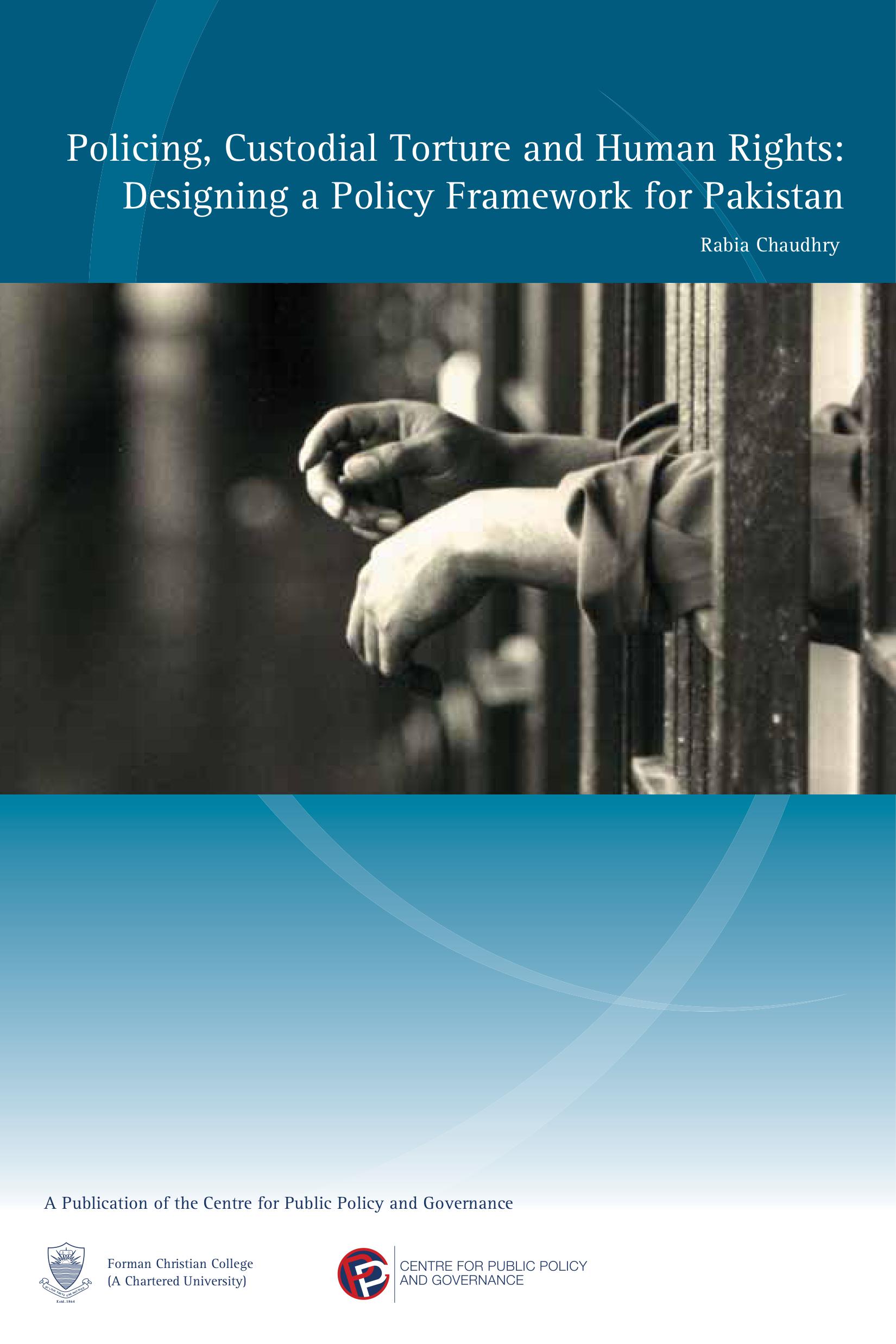
Foreword
Historically and across cultures torture has been used as a tool of governance to intimidate, coerce, subdue and force individuals and communities to make confessions against their will. Torture has been part of human history; it is only that its usages have become more sophisticated with the passage of time. What is significantly different though is that technology and globalization have raised awareness about human rights. Thus torture as an instrument of investigation is increasingly recognized as injuring human dignity, and hence demands zero tolerance. The good news is that international organizations, states, individuals, societies are becoming ever more sensitive to upholding human rights and preserving human dignity. Around the world, regulatory frameworks are being designed to curb and eliminate the use of torture as an instrument of governance.
Given this global environment and socio-political reality, the CPPG Monograph on “Policing, Custodial Torture and Human Rights: Designing a Policy Framework for Pakistan” offers a refreshing analysis and assessment of policing, custodial torture and how it impacts the human rights situation in the country. The Monograph is divided into five chapters. The first chapter provides an extensive review of how torture is defined, explained and interpreted in the national and international context. The chapter attempts to synthesize the two perspectives to convey a meaningful understanding of torture as a governance tool in Pakistani society.
The second and third chapters analyze socio cultural setting; the juxtaposition of colonial laws and how they have continued to shape the contemporary structures of policing, instrumentalization of torture and how these impact the legal framework and prosecution system of Pakistan. The study is emphatic in conveying that over the years little effort has been made to reform the investigation procedures; evidence collection; prison conditions; Thana custody and the very conduct and structure
of the police in the country.
It is in this broad context, that the present research departs from the earlier studies on the subject and ventures to build a link between various forms of torture and the need to design a policy framework for Policing, Torture and Human rights. The study boldly and succinctly recommends a comprehensive review of torture, methods of interrogation, judicial procedures, overhaul of prison system and changing the DNA of the oppressive Thana (Police Station). The study correctly cautions that unless policing and custodial torture practices are reformed, institutional coordination improves effectively and civil society becomes more vigilant, changing the architecture of the policy
framework would remain a challenge.
The study was initiated through a grant from the Foundation Open Society Institute Pakistan (FOSIP) in November 2011 and completed in July 2012 through a comprehensive review and policy dialogue with the stakeholders. However at the CPPG we have been of the considered view that this study needed to be developed into a Monograph. The CPPG encourages and vigorously supports the research of young scholars. Ms. Rabia Chaudhry, Lead Researcher, accepted the challenge and it took another nine months to go through the materials that were collected, rewrite and expand the work. She has done it diligently and imaginatively. This is the fourth research study of the CPPG’s Monograph series.
Let me take this opportunity to thank the two anonymous reviewers for providing some valuable critique and suggestions. We also deeply acknowledge the support of Mr. Kamran Arif, FOSIP, individuals and institutions who participated in focus group discussions, granted interviews and provided access to their data sources. The Lead Researcher has done her best to be methodical and dispassionate in recording and reporting the views of the interviewees
other participants. We do recognize that despite doing our best, there is always space for improvement.
We do hope, policy makers, researchers, policy analysts and members of the civil society find the findings and recommendations
of the study instructive, informative and implementable. We welcome any critique or feedback on the study.
Saeed Shafqat
Citations

